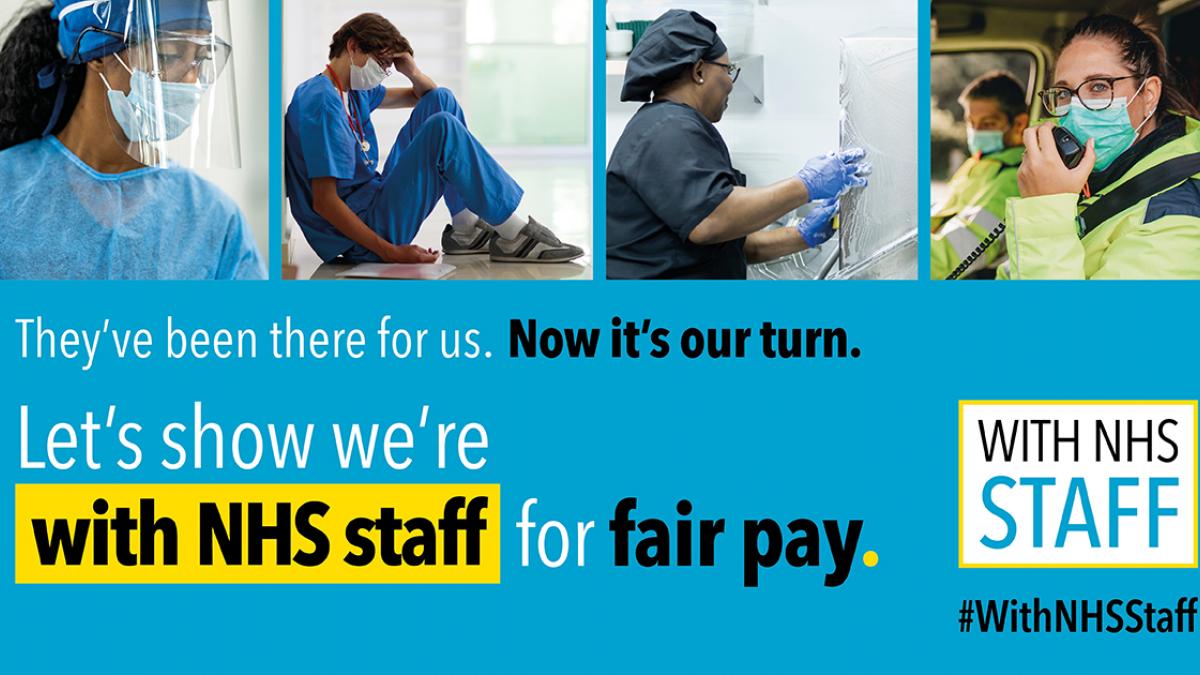Nearly 40 per cent (38.8 per cent) of NHS workers struggled to do their job properly due to staff shortages and 44 per cent felt unwell because of work related stress - in the 12 months, up to November 2020.

These are among the findings of the annual NHS Staff Survey, which was published last week.
Musculoskeletal problems were experienced by 29.3 per cent of workers in the last 12 months, according to the survey – a figure that is higher than last year (28 per cent) and has increased steadily since 2016 (25.2 per cent).
Discrimination remains an issue in the NHS and is experienced by 13.1 per cent of workers for various reasons including their gender, ethnic background or age. Ethnic background remains the most common reason cited for discrimination and was mentioned by 48.2 per cent of staff.
Further issues for NHS workers include unpaid overtime and bullying. Every week over half of NHS staff (55.2 per cent) continued to work extra hours without pay, in the 12 months up to November 2020. And more than one in three (35.4 per cent) experienced at least one incident of bullying, harassment or abuse from patients or other member of the public.
Despite the daily challenges 73.3 per cent of NHS staff reported often or always feeling enthusiastic at work and 75.5 per cent of workers reported that the working day often or always passes quickly.
And 70.2 per cent felt supported by their immediate manager - a measure which has seen a year on year increase since 2016 (67.8 per cent), though in 2020, it dipped slightly from the 2019 figure of 71 per cent.
Finally, 66.8 per cent said they would recommend their organisation as a place to work – an improvement of 3.5 per cent since 2019 (63.3 per cent) and continues a positive trend which began in 2017 (59.6 per cent).
Commenting on the results, CSP director of Employment Relations and Union Services, Claire Sullivan, said: 'While the areas of improvement are good to see, a number of important issues remain stubbornly unchanged, including levels of bullying, violence at work, stress and musculoskeletal problems and their impact on mental health is extremely concerning.'
Ms Sullivan added that most worrying of all is the confirmation of the equality impact of Covid.
‘BAME staff are significantly more likely than NHS staff who are white to have been deployed to Covid [wards], while being significantly less likely to have been able to work from home during the pandemic, than their white colleagues.
‘This is a wholly unacceptable and we will be working hard to address [this issue].’
Over 1.2 million NHS employees in England were invited to participate in the staff survey, conducted last autumn (October and November 2020) and nearly 600,000 (595, 270) completed it.
The good
- 70.4 per cent said their immediate manager takes a positive interest in their health and wellbeing
- 71.4 per cent said they receive the respect they deserve from their colleague
- 58.7 per cent said they often or always look forward to going to work
- 66.8 per cent said they would recommend their organisation as a place to work
The bad
- 12.4 per cent experienced bullying from managers
- 18.7 per cent experienced bullying from colleagues
- 14.5 per cent of staff experienced physical violence from patients or other members of the public
- only 38. 8 per cent agree there are enough staff at their organisation for them to do their job properly, although this has increased by six percentage points from 2019 (32.4 per cent)
The facts
- 57 per cent of staff were satisfied with the opportunities for flexible working
- 34. 2 per cent of staff had worked on a Covid specific ward or area
- 47 per cent of BAME staff had worked in a Covid ward or area in contrast with just 31 per cent of white staff
- almost 38 per cent of white staff had worked remotely or from home, compared to 29 per cent of BAME staff
Number of subscribers: 1



































